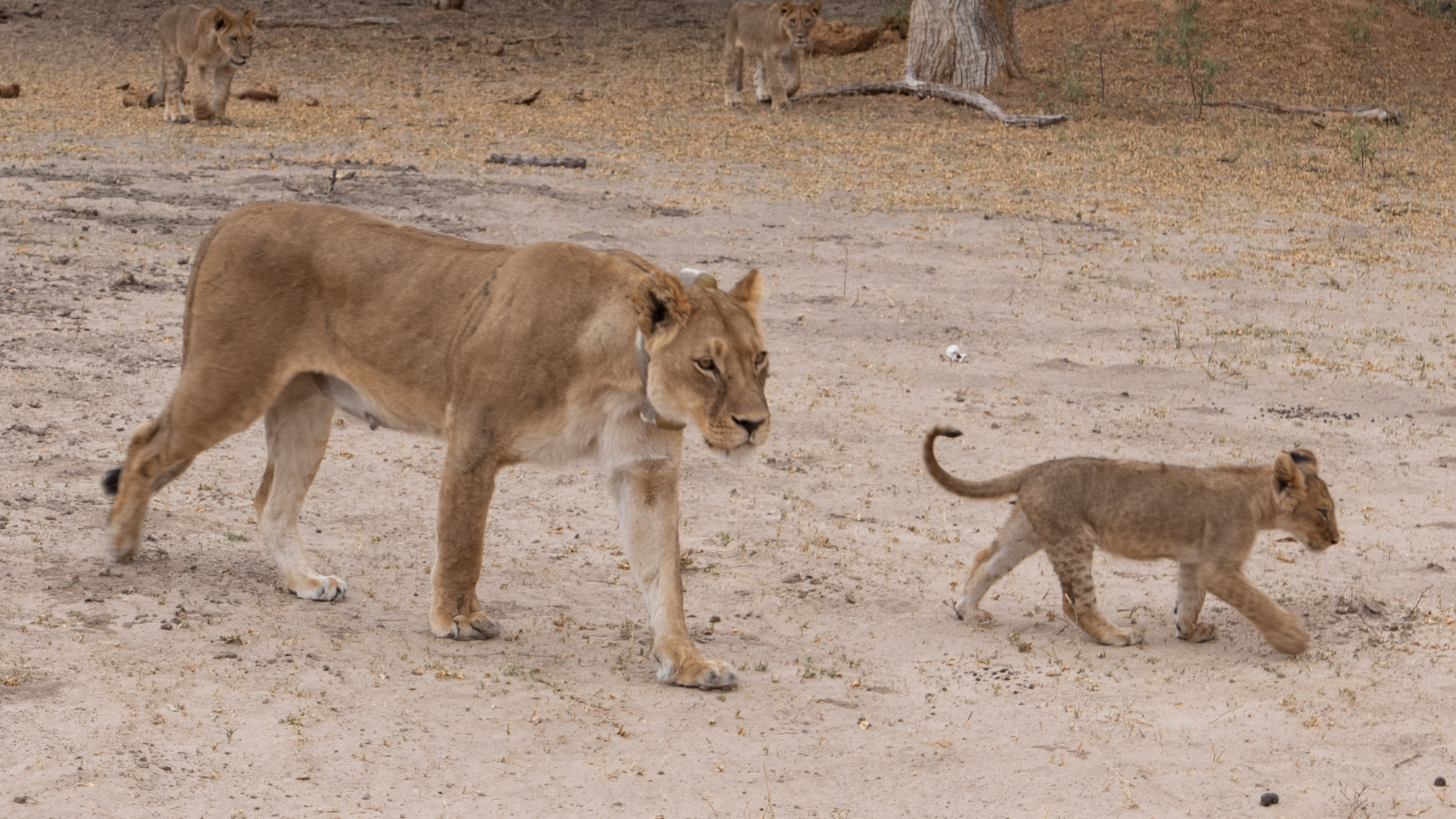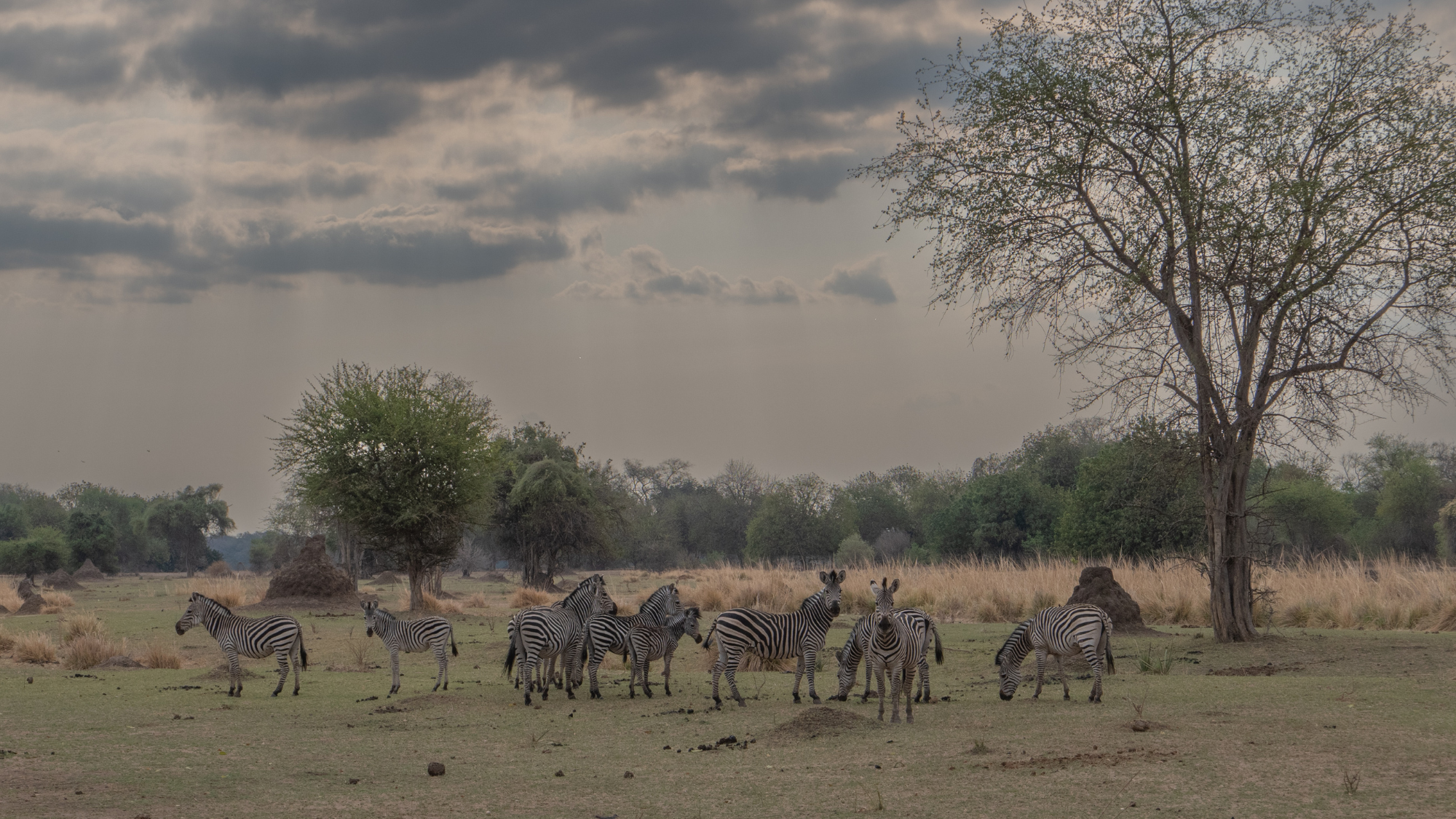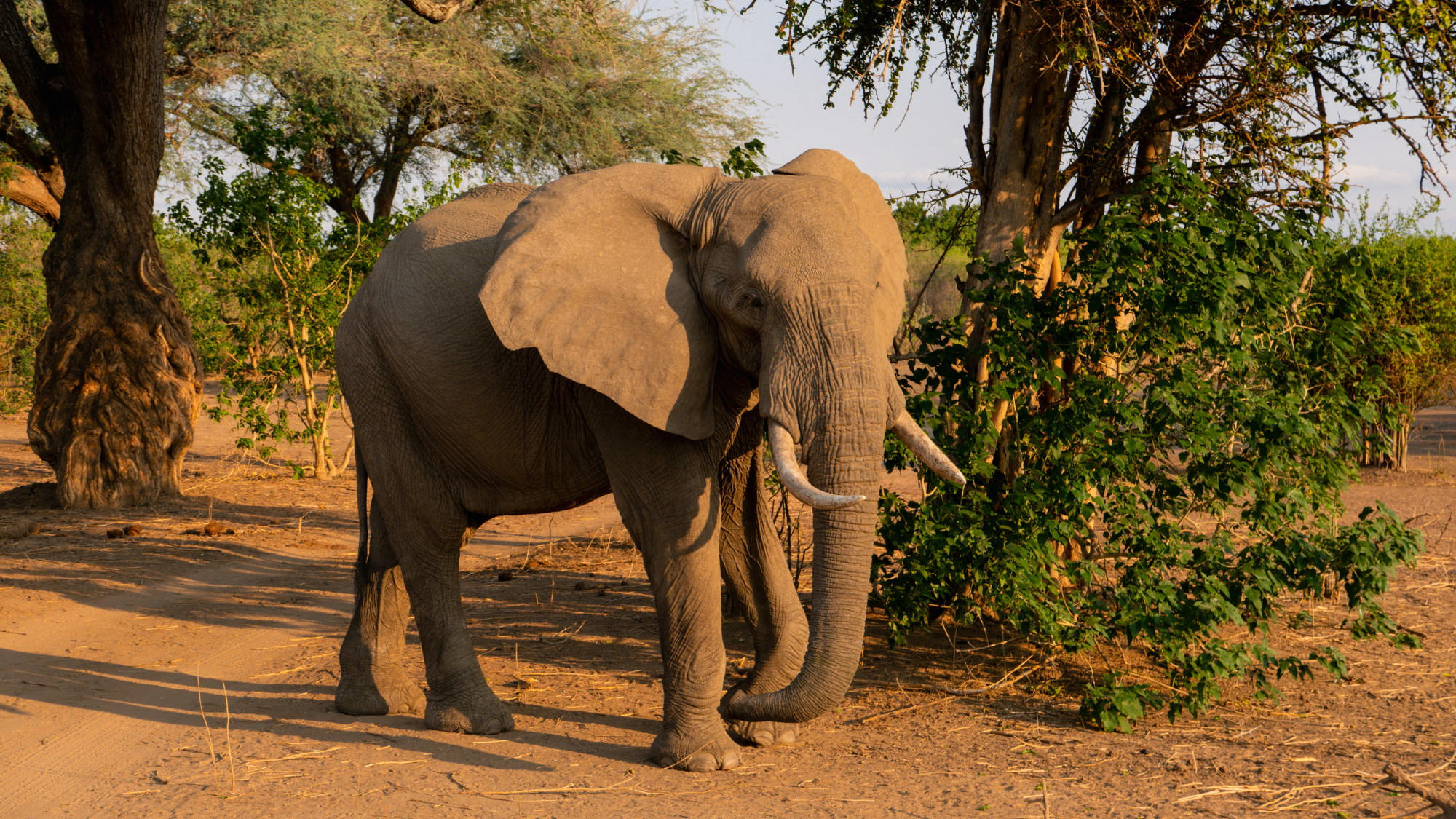Spending an early morning walking through a Zimbabwean forest is a surreal experience. The sun overhead is pleasantly warming, not yet hazardously scorching; the expansive silence makes it feel as though you’re on a solitary stroll. Ahead on the left, a sounder of warthogs observes us for a moment before scampering away; much closer on the right, an enormous bull elephant eyes us far more sternly. We’re trespassing on his territory, and it’s his steady stare that stops our rifle-toting guide in his tracks.
This uncanny blend of relaxation and adrenaline is key to a good safari. The idea is to immerse yourself utterly in the wilderness, and truly observe nature being nature.
Doing this from the relative safety and comfort of a safari vehicle offers incredible opportunities to view a wide range of species and habitats but it comes with the trade-off of reducing connection with your surroundings. A hike is the only way to feel the bristle at the back of your neck, as each crunch and whistle and flutter you hear alerts a primal part of you the city too often subdues. It should only be undertaken, though, in the company of those who truly know the bush and how to walk through it.
Our six-night trip was organised by Yellow Zebra Safaris and, at their recommendation, our time was split equally between two Wilderness camps: Linkwasha, in the Hwange National Park, and Ruckomechi in Mana Pools.
The journey from London to Linkwasha is a long one that, for us, involved a midnight transfer in Addis Ababa before landing at Victoria Falls International to await a light-aircraft connection into the bush. Something like 26(ish) hours after leaving Heathrow, our exhausted group touched down on a dusty airstrip, where we were greeted by Tongo, our guide for that portion of the trip. “We can have you at camp to freshen up in about 30 minutes,” he said, “although, we did spot a pride of lions about 45 minutes in the other direction…” Showers can wait.
Lions and buffalo in Hwange National Park

Bouncing through scrublands in the back of an open-sided safari vehicle turned out to be an excellent remedy for travel fatigue. As we barrelled along, I tried to keep my eyes on the trees either side of us, searching for any sign of movement. A herd of zebra sparked my excitement but drew not even a flinch from Tongo. Plenty of time to see them, apparently; the lions are more elusive. Eventually we found them, nonchalantly snoozing under a bush.
After watching, mesmerised, as the lions slept, it was time for a rest ourselves. Wilderness camps are all based in private concessions within their respective National Parks, so are utterly remote and exceptionally private. Linkwasha, as these camps often do, looks onto a large watering hole frequented by many species; where it differs is in having a sunken hide right at the water’s edge, meaning guests can get even closer to the animals. Watching an enormous herd of buffalo drink just a couple of metres from my seat is something which will live long in the memory.
Getting that close to the herd enabled us to see just how much they had been physically affected by the drought gripping the area. The animals still had water to drink, thanks to these water holes, but the lack of vegetation to eat was taking its toll, leading them weak, and easy prey for predators. Over a torchlit dinner by the fire, we discussed the drought, and many of the efforts to conserve the Park’s landscape, with Innocent Mabika, head of a local anti-poaching unit and one of Yellow Zebra’s contacts in the area.
Zebra, elephants and crocs at Mana Pools

The next morning, a short flight took us across the country to Mana Pools. The distance, as the crow flies, is reasonably short but the difference in terrain could not have been more stark. There, we found wildlife living almost on top of one another; our camp was regularly visited by small herds of elephants, and we spotted plenty of zebras nearby.
Once again, we stayed in a Wilderness camp – this time, Ruckomechi – and were treated to exceptional cuisine and extraordinary service. Tents in all the camps are large and comfortable, with enormous beds and well-appointed bathrooms, but one thing really came into its own here: the laundry service. Coming home from a game drive to find yesterday’s clothes scrubbed clean and tied in a neat little bundle is possibly the luxury I’ve appreciated most while travelling.
Exploring Mana Pools by vehicle brought another lion encounter but, at this location, we could also take to the water. Angling for tiger fish turned out to be something I am terrible at but, from our position on the boat, we saw crocodiles hunting, hippos basking and elephants using their trunks as snorkels to wade across to the Zambian side for grazing.
Over the course of my week in Zimbabwe, I visited two camps, four airports/landing strips, saw north of 40 animal species and spotted over 100 different types of bird. I watched hippos tear the flesh from an antelope carcass, learned some words in Ndebele from local schoolchildren, and got photography tips from a Netflix documentary maker. As I sipped a Zambezi (the local beer) while floating down the Zambezi (the majestic river), it dawned on me that none of that would have happened had I attempted to arrange this trip on my own. It pays to trust an expert to help you navigate what you don’t know.

Nick Hendry was a guest of Yellow Zebra. Their 8-night, all-inclusive True Zimbabwe experience starts from £5,331 pp in low season and £6,410 pp in high season.